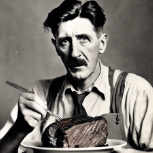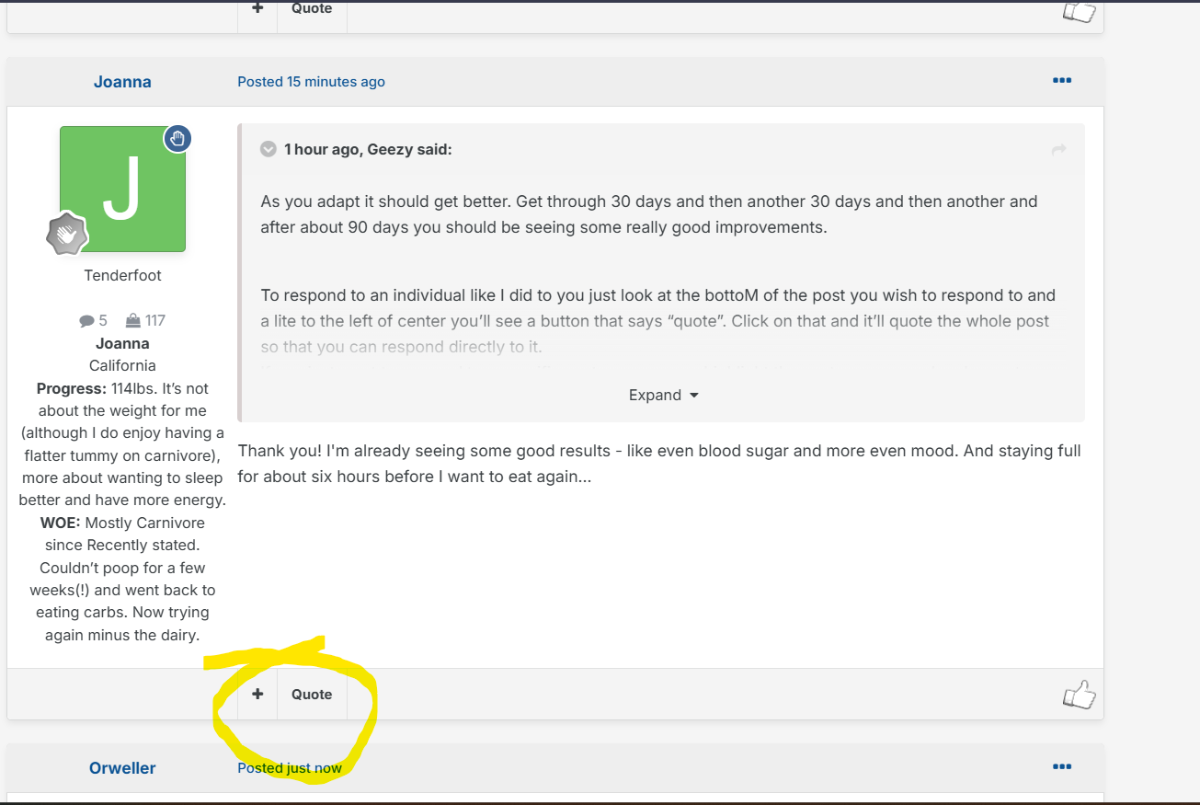Welcome to our Carnivore / Ketovore / Keto Online Community!
Welcome to Carnivore Talk! An online community of people who have discovered the benefits of an carnviore-centric ketogenic diet with the goal of losing weight, optimizing their health, and supporting and encouraging one another. We warmly welcome you! [Read More]
- Replies 7
- Views 1.2k
- Created
- Last Reply
Most Popular Posts
-
I went over 60 days this week. So far, I'm only seeing the positives. Weight loss, off pain/anti-inflammation medicines for NMOSD (Devic's) and energy I have not seen in years. I do feel like whe
-
The insomnia and leg cramps at night are one thing that have prevented me going full carnivore in the past. Only 3 days in now myself, and I'm finding Organic full fat plain Greek yogurt about 4 hour
-
Welcome Jarrod. Glad you could join us. I really can’t relate to what you are going through Jarrod because I’ve only experienced any anxiety a couple of times in my life under some very stressful cir









My name is Jarrod and I'm going carnivore! I'm so glad I found this place so I can talk to people who are also trying this out.
I've went for it several times before but I always end up developing anxiety and insomnia after a few days and it makes it very hard to keep going because as soon as I eat carbs, the anxiety goes away and I can sleep again.
My body feels awful on carbs, but my brain gets weird without them. haha
Longest I've gone is 50ish days but the anxiety comes and goes in waves and seems to get worse over time.
Yesterday was day 3 this time and it spiked so hard last night that I had to give my wife some space so I wouldn't be mean to her, and I needed Zzzquil to sleep enough so I wouldn't be useless at work today.
It MIGHT be transition symptoms, it MIGHT be that my protein is too high and my fat is too low, it MIGHT be something like glutathione or not enough GABA... but honestly I don't know.
It's made such a huge positive impact to the health of my body and this anxiety and insomnia is very frustrating.
Any resources in the forum I can look at? Anybody have similar experiences?
Thanks in advance for any help! I'm so happy to get to meet everybody. 🙂